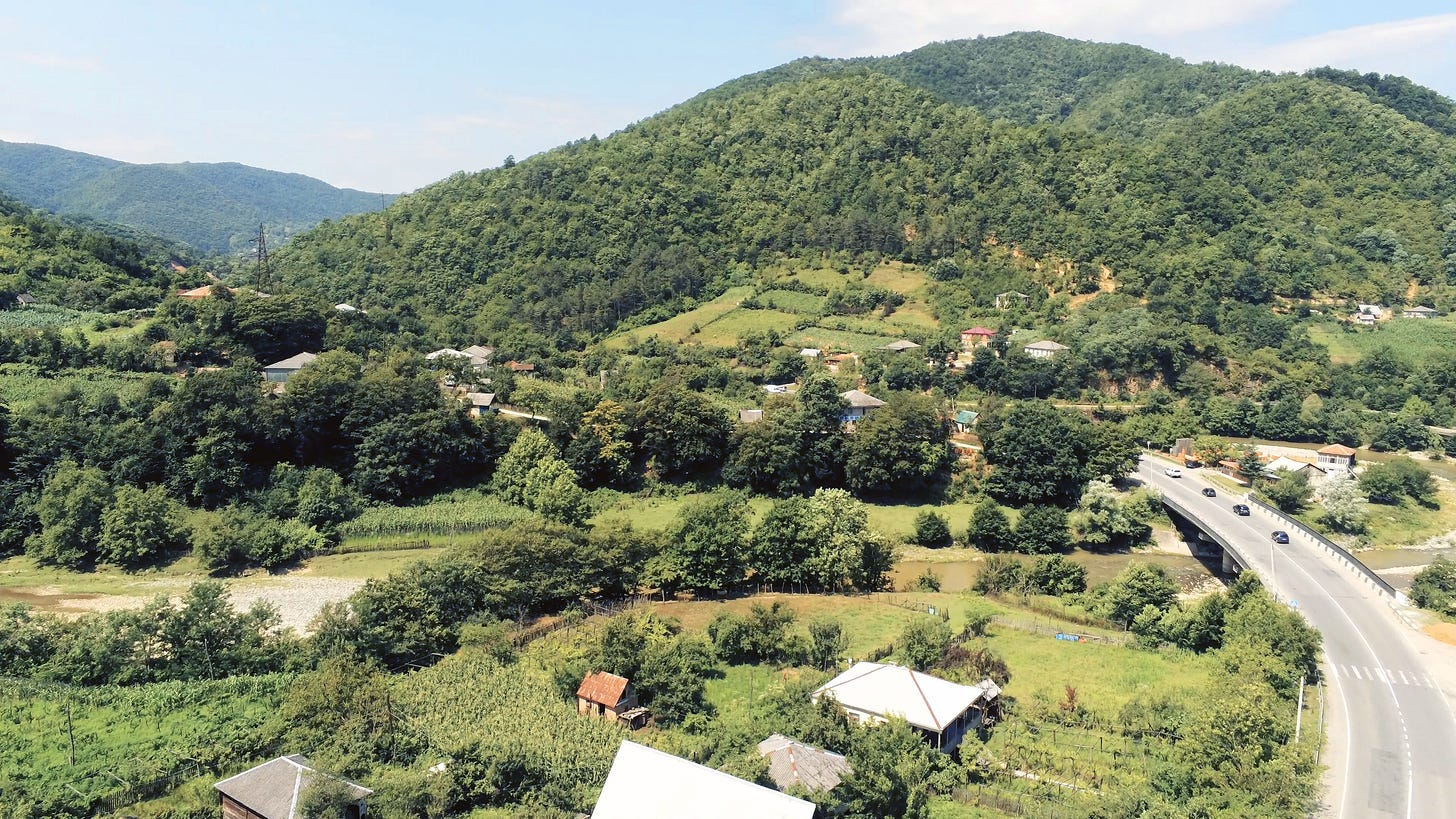
The canyons of central Georgia are located at an historical crossroads between Central Europe and Central Asia. Renewed interest in this route, driven by China’s New Silk Road Initiative and European interests in the Trans-Caucasus Transit Corridor are bringing global-scale infrastructure through these relatively remote villages.
While several existing pipelines and railways carry petroleum products from Central Asia to the Black Sea ports, the East-West Highway through the Rikoti Pass will enable the multimodal shipment of containers from East Asia to Central Europe.
Where the Soviet-era highway intertwines with the river and weaves its way through canyons, the new freeway punches through with a series of tunnels and bridges. In some cases, a tunnel and bridge along the existing alignment can be supplemented by a tunnel and bridge carrying new lanes. Here this is accomplished by cutting the ridge away entirely.

When all of this straightening-out of the road is completed, the 5-6 hour drive from Tbilisi to Batumi will be reduced to 3 hours, making it much easier for motorists to travel from the capital to the Black Sea coast.
In most areas the realignment will move traffic away from village roads, creating the opportunity for more pleasant access to the river. In others, the loss of the roadside economy will prove challenging.
In total the East-West Highway improvements are expected to cost over 800 million USD, with financing from the European Investment Bank, the Asian Development Bank, the World Bank, and the Japanese International Cooperation Agency among others.







